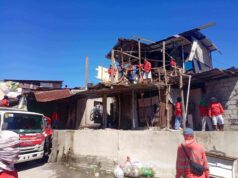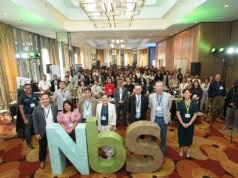Thus, the Catholic Bishops Conference of the Philippines issued June 5 – one month past a full year to the May 2016 elections – a pastoral letter with the express intent and the highest hope to help educate voters into electing only the deservingly best for the nation.
Signed by CBCP president Lingayen- Dagupan Archbishop Socrates Villegas, this moral compass to help the electorate navigate next year’s stormy political sea, so to quote a Kapampangan cleric, abounds with red flags.
A caveat, for one: “Just as the discerning voter will not be easily won over by all the flattery in favor of one candidate, neither should a voter allow demolition jobs to dissuade him from choosing a person who is truly fit for office.”
Leading to a commandment: “Reject the notoriously corrupt, but neither should one readily jump on the bandwagon of condemnation in the absence of incontrovertible evidence, for, these days, one’s reputation, so painstakingly built by sincerity and honesty over the years, can so easily be tarnished by the truly evil work of ‘spin-doctors’ in the payroll of one or the other political aspirant.”
Onto the CBCP’s cry turned hoarse after so long in shouting: “End political dynasties… prudently choose others who may have equal if not superior abilities and competencies for the position.”
Reminding the voters of a truism long lost in Philippine political praxis: “There is no monopoly on ability for government, and truly no one in government is indispensable.”
Yeah, as in “No substitute for Marcos. No substitute for victory” of long ago.
Yeah, as in “Mahirap nang makahanap ng matino at magaling na Presidente. One more term for PNoy” of but a year ago.
Whence dynasties breed, the CBCP seeks to scrap naturally so: “Reject a government by patronage” with the personal “kapit sa taas” never a right reason for choosing a candidate.
Neither is bribe money.
An advisory on wannabes: “A person who aspires for high office but who, because of inexperience, will be totally dependent on advisers, is not the best possible candidate for national positions, but we should be willing to repose trust on those who, we are convinced, are capable of leading and of serving with probity, high above suspicion, and with skill, competence, and wisdom that comes from abiding faith.”
Faith. Indeed, that, according to the CBCP, defines electoral choice: “That a person is a firm believer, and that he or she practices her faith should be a crucial consideration for the Catholic voter.”
Engage in the political process with the “right questions” as well: “Do not demand to know of a congressman or a senator what his or her local projects have been. Legislators are not supposed to have local projects. They are supposed to legislate, to attend congressional sessions, rise to debate and actively take part in committee hearings.”
So should be damned then the epal-itics attendant to all public infra woks as projects of this congressman or that mayor.
Through it all, the requisite of discernment, that voting is as much a political right as a “moral obligation.”
“For the Christian, it is one of the most meaningful and effective means of contributing to the flourishing of the Kingdom of God, a kingdom of justice, peace, and love. And so while politicians plan and strategize, and, this early, find ways of circumventing the law against premature campaigning, the Church cannot be remiss in its obligation of forming the consciences of Catholic and Christian voters.”
Indeed, as Villegas was reported to have messaged in a forum last April: “Your vote can bring heaven to the Philippines. Your vote can also bring hell to the Philippines. Your vote, with God, becomes God, and if your vote is good, you bring heaven here on earth.”
Amen. There vox populi truly comes to being vox Dei.



